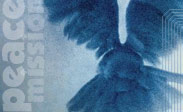


   |
|
MARTIN LUTHER KING
Year: 1964 Nobel Peace Prize Cause: Symbolic leader of American blacks and a world figure. Biography One of the most visible advocates of nonviolence and direct action as methods of social change, Martin Luther King, Jr. was born in Atlanta on 15 January 1929. As the grandson of the Rev. A.D. Williams, pastor of Ebenezer Baptist church and a founder of Atlanta's NAACP chapter, and the son of Martin Luther King, Sr., who succeeded Williams as Ebenezer's pastor, King's roots were in the African-American Baptist church. After attending Morehouse College in Atlanta, King went on to study at Crozer Theological Seminary in Pennsylvania and Boston University, where he deepened his understanding of theological scholarship and explored Mahatma Gandhi's nonviolent strategy for social change. King married Coretta Scott in 1953, and the following year he accepted the pastorate at Dexter Avenue Baptist Church in Montgomery, Alabama. King received his Ph.D. in systematic theology in 1955. Dr. King's exposure to non-violent civil disobedience was shaped by Thoreau's Essay on Civil Disobedience, Walter Rauschenbush's Christianity and the Social Crisis, Dr. Mordecai Johnson's sermon on the teachings of Mohandas Gandhi and his personal feelings about right and wrong. Dr. King believed that poverty caused much of the unrest in America. Not only poverty for African-Americans, but poor whites, Hispanics and Asians. Dr. King believed that the United States involvement in Vietnam was also a factor and that the war poisoned the atmosphere of the whole country and made the solution of local problems of human relations unrealistic This caused friction between King and the African-American leaders who felt that their problems deserved priority and that the African-American leadership should concentrate on fighting racial injustice at home. But by early 1967 Dr. King had become associated with the antiwar movement Dr. King continued his campaign for world peace. He traveled across America to support and speak out about civil rights and the rights of the underprivileged In April 1968 Dr. King went to Memphis, Tennessee to help the sanitation workers who were on strike. The following day, April 4 1968, as he was leaving his motel room Dr. Martin Luther King, Jr. was shot and killed. Achivements 1957 - Time - One of the Most Outstanding Personalities 1957 - Who's Who in America - Listed 1957 - NAACP - Spingarn Medal 1957 - National Newspaper Publishers - The Russwurm Award 1958 - Guardian Association of the Police Department of New York - The Second Annual Achievement Award 1959 - Link Magazine of New Delhi - one of sixteen world leaders who had contributed most to the advancement of freedom during that year 1963 - Time - Man of the Year 1963 - Laundry, Dry Cleaning, and Die Workers International Union - American of the Decade 1964 - United Federation of Teachers - John Dewey Award 1964 - Catholic Interracial Council of Chicago - John F. Kennedy Award 1964 - Nobel Foundation - Nobel Peace Prize 1968 - Jamaican Government - Marcus Garvey Prize for Human Rights 1968 - Southern Christian Leadership Conference - Rosa L. Parks Award Related Links Nobel Peace Prize 1964: Dr. Martin Luther King |